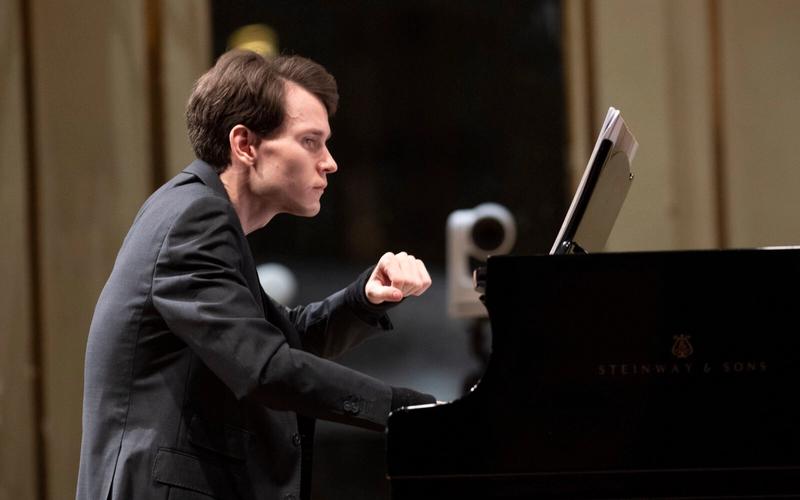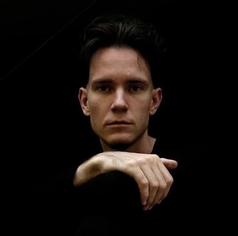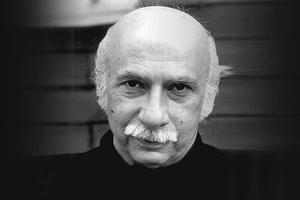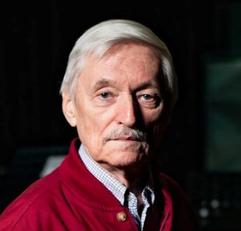Wanderer
Dmitry Batalov
Photo: Didier Depoorter

Duration: 65 min
Radialsystem Halle
Holzmarktstraße 33, 10243
Dmitry Batalov - pianist
This programme unites four works that, while originating from distinct aesthetic worlds, each explore the expressive and structural possibilities of solo piano writing. Spanning early Romanticism to the experimental vanguard of the late 20th century, the recital invites the listener into diverse sonic landscapes where the piano becomes not merely an instrument, but a site of transformation, introspection, and conceptual inquiry.
Helmut Lachenmann’s "Serynade" (1998) anchors the programme with a radical reimagining of piano performance. Here, traditional pianistic technique yields to a meticulous exploration of resonance, friction, and physical gesture. The work avoids conventional melody and harmony, instead unfolding as a tactile and sonic investigation of the piano’s acoustic potential. It challenges not only the performer but also the listener, urging a reconsideration of what music can be.
Written a year before his death, Giya Kancheli's "Sarabande" (2018) shifts the focus toward conciseness and emotional restraint. This short piece, full of subdued expression and spiritual depth, reveals Kancheli’s unique voice: quiet, modal, and often defined as much by silence as by sound. The work was composed for pianist Sergey Babayan and is dedicated to him.
In sharp contrast — but with comparable structural ingenuity — Leonid Hrabovsky’s "Homeomorphy II" (1968) applies the logic of mathematical transformation to sound. Drawing on topological concepts, Hrabovsky shapes a spare, highly focused musical environment where small pitch and rhythmic cells evolve through subtle permutations. The work’s abstraction is not alienating but meditative, encouraging deep listening and attentiveness to minute changes.
Franz Schubert’s "Fantasia in C major, D 760" (“Wanderer-Fantasie”, 1822) concludes the programme with its bold formal innovation and thematic cohesion. Structured as four continuous movements, the work integrates song, variation, fugue, and sonata into a seamless whole. A quotation from Schubert’s earlier lied "Der Wanderer" becomes the driving motif for the entire piece, embodying the Romantic theme of existential restlessness and forging a bridge between lyrical intimacy and symphonic ambition.
Programme
Helmut Lachenmann
Serynade (1998-2000) 29’
Giya Kancheli
Sarabande (2018) 4'
Leonid Hrabovsky
Homoeomorphy II (1969) 10' GP
Franz Schubert
Fantasie in C major D.760 "Wanderer-Fantasie" (1822) 20’
Contributors

dmitry batalov
pianist
Swiss-based pianist Dmitry Batalov was born in Moscow in 1997. He received his professional education at the Central Music School and the Moscow State Tchaikovsky Conservatory, where he studied both piano and musicology, graduating with honors in 2021. In 2022, he moved to Switzerland to pursue specialized performance in contemporary music at the Basel Music Academy, while also studying classical piano with Prof. Claudio Martínez Mehner and historical piano with Prof. Tobias Schabenberger. During this period, he won first prize at the Reate Festival Competition for Contemporary Music Performance in Rome (November 2023) and the John Cage Award in Halberstadt, Germany (August 2024). He has also been a recipient of the Nicati-de-Luze Foundation scholarship and a winner of the 2025 Göhner Musikpreis of the Kiefer Hablitzel Stiftung. He is currently undertaking postgraduate studies at the Basel Music Academy.
Batalov has collaborated with composers such as Helmut Lachenmann, Salvatore Sciarrino, Tristan Murail, Philippe Hurel, Marco di Bari, Fabio Vacchi, and Vladimir Gorlinsky. His active repertoire spans all stylistic periods from the early Baroque to the present, comprising dozens of monographic and conceptual recital programs—many of which center on dialogues between well-established and lesser-performed works.

giya kancheli
composer
Giya Kancheli (1935–2019) was Georgia’s most distinguished composer. He wrote music for numerous stage productions and dozens of films, including "Mimino" and "Kin-dza-dza!". He also composed seven symphonies and the opera "Music for the Living".
In the 1970s, Kancheli taught at the Tbilisi Conservatory and served as head of the music department at the Rustaveli Theatre in Tbilisi. After the dissolution of the Soviet Union in 1991, he lived first in Berlin and, from 1995, in Antwerp, where he became composer-in-residence for the Royal Flemish Philharmonic.
A sense of exile and a longing for a time and place irretrievably lost are recurring motifs in his music.

leonid hrabovsky
composer
Leonid Hrabovsky (born 1935 in Kyiv, Ukraine) is one of the Ukrainian composers whose works marked the beginning of the modernist era in Ukrainian music. He is regarded as one of the most significant and original creative voices to emerge from Eastern Europe in the late 20th century.
Hrabovsky studied composition under Boris Lyatoshynsky and Lev Revutsky at the Kyiv Conservatory, graduating in 1959. His diploma work, "Four Ukrainian Songs" for chorus and orchestra (1959), won first prize in an all-Union competition. Shostakovich wrote about it: “The Ukrainian Songs by Hrabovsky pleased me immensely — his arrangements attracted me by the freedom of treatment and good choral writing.”
Hrabovsky was one of the first Soviet composers to adopt minimalism. His works include dramatic, orchestral, chamber, vocal, and solo instrumental music. In 1990, he moved to New York to take up the position of composer-in-residence at the Ukrainian Institute of America. He currently lives in the United States and remains active as a composer, organist, and guest lecturer.